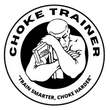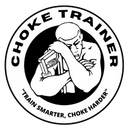How to Read (and Actually Remember) One New Concept Every Day
Practical strategies for lifelong learning and self-improvement

In a world that never stops changing, staying mentally sharp isn’t just an advantage—it’s a responsibility. Whether you’re a business owner, an athlete, or just someone committed to personal growth, learning one new concept each day can become a superpower. But there’s a catch: reading isn’t enough. You have to remember what you read, and more importantly, apply it.
So how do you consistently learn something new and make it stick?
Here’s how to make daily learning part of your lifestyle—and how to remember what you actually learn.
1. Start with the Right Kind of Content
The key to learning something meaningful every day is to stop consuming junk information. Mindless scrolling doesn’t make you smarter—it makes you scattered. Instead, curate your inputs. Great daily sources include:
• Books (aim for just 1 page per day if you’re busy)
• Podcasts with domain experts
• Newsletter roundups (like Farnam Street or The Daily Stoic)
• Subreddits and forums focused on your craft
• Audiobooks during commutes
Ask yourself: Does this idea make me think differently or solve a real problem?
2. Use Spaced Repetition to Lock It In
Spaced repetition is one of the most powerful tools for memory retention. Here’s how it works: instead of cramming, you review the concept at increasing intervals—1 day later, 3 days, 7 days, etc.
Apps like Anki or RemNote automate the process. Or you can go low-tech: each day, write down yesterday’s concept in a notebook and test yourself before moving on to a new one. A 5-minute review that leads to long-term memory.
3. Make a One-Sentence Summary
After reading or listening to something new, distill it into one clear sentence. This forces your brain to understand and reframe the idea in your own words. That’s how you turn vague ideas into actionable tools.
Example:
“Instead of chasing motivation, I should build systems that make action automatic.” —from Atomic Habits
Review your takeaways weekly. This simple habit builds a powerful mental library.
4. Use the Feynman Technique
This technique helps you teach what you just learned:
-
Write the concept down in plain language as if explaining to a 10-year-old.
-
Identify confusing parts.
-
Revisit the source and simplify.
-
Repeat.
If you can’t explain it simply, you don’t understand it yet.
5. Anchor New Ideas to Your Life
Memory thrives on context. Connect new concepts to your work, training, or relationships. When you see the idea in action, your brain flags it as valuable.
Examples:
• Read about stress adaptation? Relate it to how your body responds to jiu jitsu training.
• Learn a productivity method? Apply it to how you prep meals or structure your week.
The more personal it feels, the more permanent it becomes.
Why You Should Train Jiu Jitsu (Especially If You Care About Growth)
Jiu jitsu is one of the most powerful tools for self-improvement. It teaches you to stay calm under pressure, reflect on your performance, and push through discomfort.
Every roll on the mat is a live experiment in adapting and growing. That’s why so many high performers across disciplines train in it. It builds your body, your mindset, and your discipline.
If you’re in the Huntsville, Texas area, come train with us at Gracie Humaita Huntsville Jiu Jitsu. We offer a free trial class to help you get started.
👉 www.graciehumaitahuntsville.com
Final Thoughts
Learning one new concept per day doesn’t require genius. It requires consistency.
Stacked over time, one small idea each day becomes a mountain of knowledge—and more importantly, applied wisdom. Whether you’re on the mats, at work, or just trying to be a better version of yourself, the habit of daily learning creates momentum that compounds.
Start today. Write down your takeaway. Review yesterday’s idea. Connect it to your life. Teach it to someone else. Repeat.
Want to Lead Yourself Better?
If you’re also working on becoming a better leader—in your life, at work, or on the mats—I’ve written a book that might support your journey. It’s called Self Leadership, and it’s about leading yourself with discipline, clarity, and purpose before you ever try to lead others.
You can find it here: Self Leadership on Amazon

Your growth isn’t accidental. It’s intentional.

